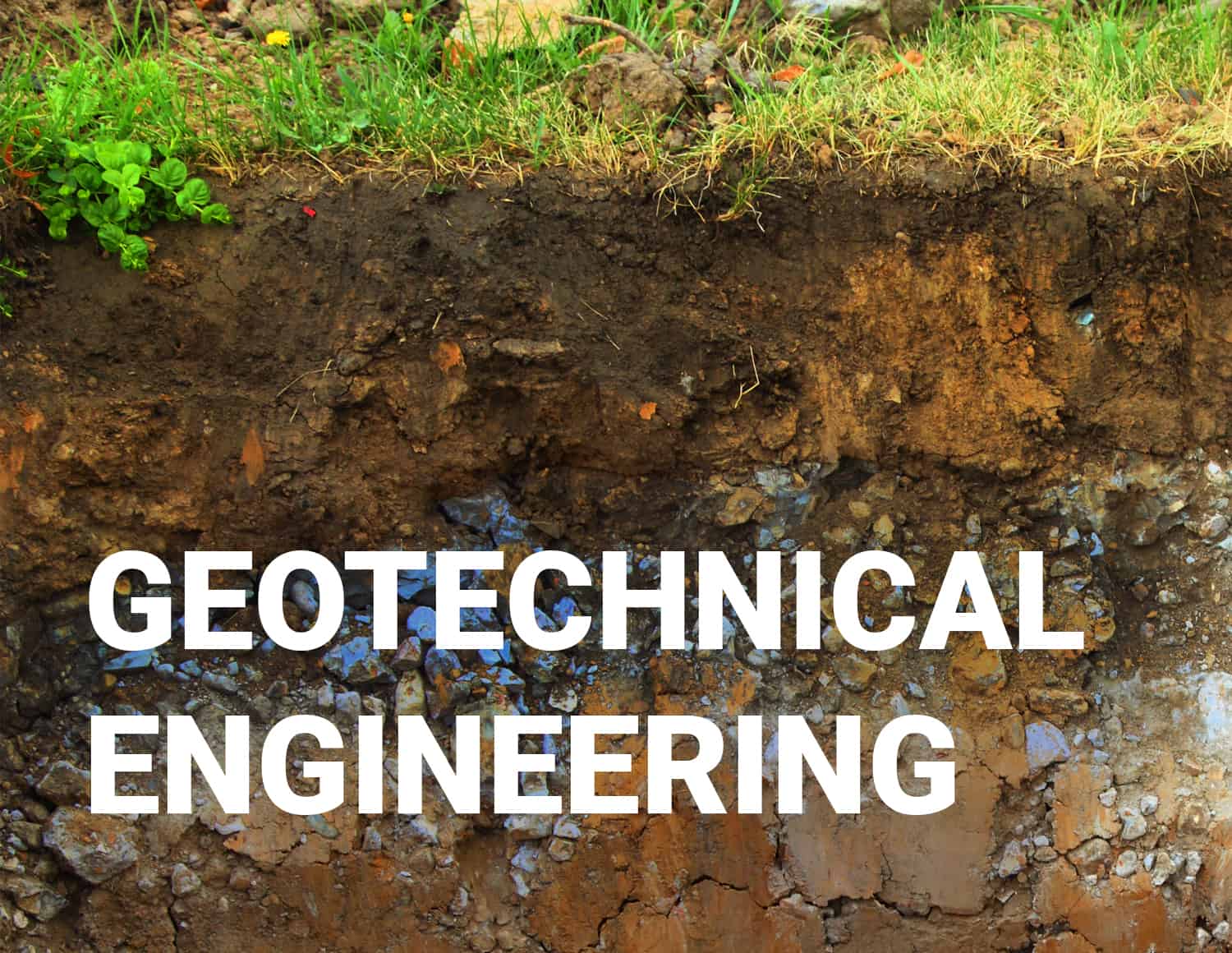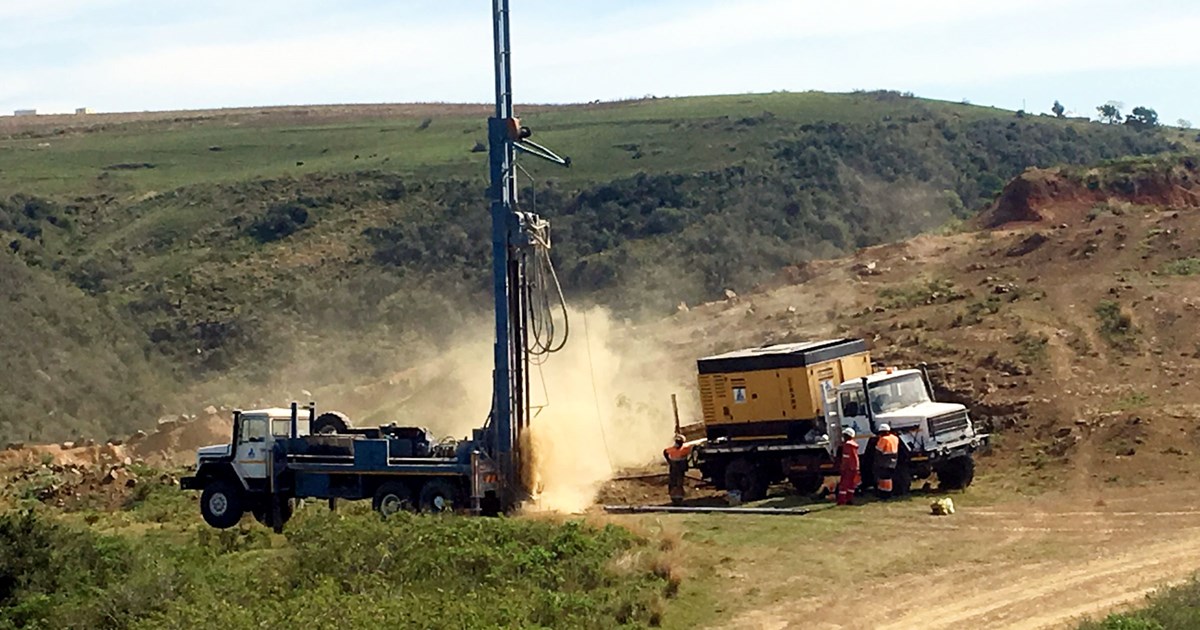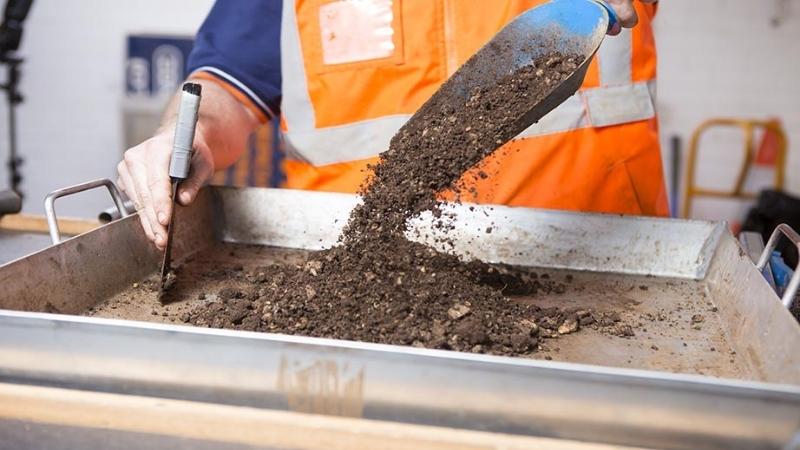The Significance of Geotechnical Engineering in Addressing Ecological Challenges and Enhancing Building Security
Geotechnical engineering acts as a keystone in the intersection of environmental stewardship and construction safety and security, giving essential insights right into the actions of soil and rock under numerous conditions. This self-control not only addresses pressing ecological challenges such as soil disintegration and groundwater protection but likewise boosts the robustness of framework against all-natural hazards. By executing strategic site investigations and tailored reduction measures, geotechnical engineers play a vital duty in securing both human lives and ecological stability. Yet, the complexities of these challenges raise important inquiries regarding the future direction of this area and its ramifications for sustainable advancement.

Duty of Geotechnical Engineering
Geotechnical engineering plays an essential role in the layout and building and construction of framework by attending to the habits of soil and rock materials under numerous conditions. This area of design is essential for recognizing the communication in between frameworks and the ground, that includes establishing the load-bearing ability of dirt, assessing stability, and anticipating possible settlement or failure.
Geotechnical designers are accountable for carrying out website investigations, which entail sampling and testing soil and rock to collect information on their physical and chemical properties. This details is crucial for making structures, maintaining wall surfaces, and other earth-retaining frameworks that guarantee safety and long life. Additionally, geotechnical design educates the choice of appropriate building and construction techniques and products, thus lessening risks connected with soil actions.
Additionally, the combination of geotechnical design principles into city preparation and environmental management is vital for dealing with obstacles such as ground contamination and groundwater management. By recognizing geotechnical aspects, engineers can develop lasting services that enhance the strength of facilities against natural risks, while likewise promoting ecological stewardship. Inevitably, the duty of geotechnical design is important for achieving risk-free, durable, and ecologically conscious building techniques.
Dirt Erosion Mitigation
Dirt erosion postures a significant threat to both environmental security and framework honesty, affecting approximately 24 billion lots of fertile dirt lost annually worldwide. This phenomenon is intensified by factors such as deforestation, urbanization, and inadequate farming techniques. Geotechnical engineering plays an essential role in developing reliable soil erosion reduction approaches that protect both the atmosphere and construction jobs.
One technique entails the implementation of erosion control approaches such as vegetation growing, which maintains soil with root systems. Additionally, the building of preserving walls and terraces can efficiently lower surface runoff and shield susceptible locations from disintegration. Proper water drainage style is additionally critical; it reduces water build-up and guides excess runoff far from important structures.
In addition, geotechnical engineers use soil stabilization strategies, such as the application of geotextiles and eco-friendly floor coverings, to improve soil cohesion and stop deterioration - geotechnical companies in south africa. Routine surveillance and assessment of erosion-prone websites make it possible for prompt interventions, ensuring lasting sustainability. By integrating these strategies, geotechnical design not just alleviates the impacts of dirt disintegration however additionally adds to the strength of facilities versus environmental difficulties, eventually fostering a more secure and extra sustainable constructed setting
Groundwater Protection Strategies
Groundwater acts as a crucial source for drinking water, farming, and industrial processes, making its defense vital for ecological sustainability and public health. Efficient groundwater protection techniques are important in minimizing contamination dangers and guaranteeing the durability of this resource.

Regular monitoring of groundwater quality is also vital, enabling early detection of contamination resources and promoting timely remediation initiatives. Using innovative technologies, such as geophysical surveys and remote noticing, aids in determining prospective dangers to groundwater books.
Additionally, public education and stakeholder interaction are critical, fostering neighborhood assistance for groundwater security efforts. about geotechnical engineering. By incorporating governing measures, technological advancements, and area involvement, we can produce an extensive framework that safeguards groundwater resources while promoting sustainable development and building techniques
Landslide Risk Management
Landslides posture substantial dangers to both human safety and facilities, making reliable danger monitoring methods essential. Geotechnical engineering plays a crucial role in determining, assessing, and mitigating landslide dangers. A detailed understanding of incline stability, dirt auto mechanics, and hydrology is crucial for creating efficient danger monitoring plans.
The primary step in landslide risk monitoring entails extensive website examinations, that include geological mapping and dirt testing. These investigations aid engineers review the potential for landslides by determining essential factors such as incline angles, soil structure, and water content. Using sophisticated innovations such as remote noticing and geophysical studies can improve the accuracy of these analyses.
When risks are determined, proper reduction measures can be executed. These may include engineering remedies such as maintaining walls, water drainage systems, and incline stablizing methods. Moreover, keeping an eye on systems ought to be established to spot signs of ground activity and adjustments in water degrees, enabling aggressive treatments.

Enhancing Building And Construction Security
Building sites usually present a myriad of risks that can threaten worker safety and security and project integrity. Continue Geotechnical engineering plays a critical duty in boosting building and construction safety and security by giving crucial understandings right into subsurface problems. Via thorough dirt and rock evaluation, geotechnical engineers can identify possible threats, such as dirt instability, groundwater problems, and seismic vulnerabilities, which might jeopardize the security of construction tasks.
Executing geotechnical remedies, such as proper structure design and the use of preserving frameworks, mitigates these dangers considerably. These remedies not only make certain the stability of the structures being constructed but likewise develop a safer working atmosphere for construction personnel.
Additionally, cultivating a society of safety through training and adherence to developed safety and security methods further enhances construction website safety. By integrating geotechnical competence right into the preparation and implementation phases, building jobs can accomplish greater security requirements, eventually securing workers and guaranteeing successful project completion.
Conclusion
In conclusion, geotechnical design serves as a critical technique in dealing with environmental difficulties and promoting building and construction security. Via efficient dirt erosion reduction, groundwater protection methods, and landslide risk administration, geotechnical designers contribute to the growth of resilient facilities.
Geotechnical design serves as a keystone in the intersection of environmental stewardship and building and construction safety, supplying crucial understandings right into the behavior of soil and rock under numerous conditions. Geotechnical engineering notifies the option of suitable building approaches and materials, thus decreasing threats associated with soil habits.
Geotechnical design plays a pivotal function in developing effective dirt disintegration reduction techniques that protect both the setting and construction jobs.
Additionally, geotechnical designers use soil stabilization techniques, such as the application of geotextiles and naturally degradable floor coverings, to boost dirt communication and protect against degradation. Through extensive soil and rock analysis, geotechnical engineers can determine prospective risks, such as soil instability, groundwater issues, and seismic vulnerabilities, which may compromise the safety of construction tasks.